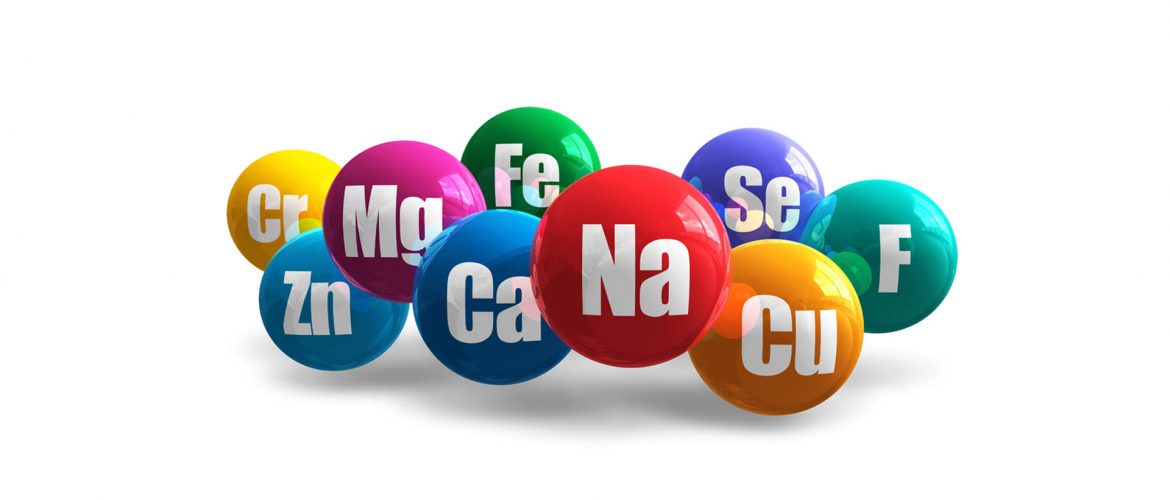There’s a direct correlation between mineral deficiencies and illness or disease. Dr. Linus Pauling, the winner of two Nobel Prizes in Medicine, believes that every sickness, every disease and every ailment can be traced to a mineral deficiency. Deficiencies are largely believed to be rare in our society, when in fact they are really very common. For example: the average American diet provides only 40% of the RDA of Magnesium, leading authorities estimate 80% of the population is deficient in magnesium, 68% of the population receive less than 2/3 RDA of Zinc, 80% of the population is deficient in chromium.
We should obtain balanced levels of minerals and vitamins from our food, but this does not occur because our food is stripped of its nutrients in processing and our food is grown in soil that is depleted of minerals and vitamins. Soil is destroyed with chemical fertilizers, insecticides, overuse of soil, etc., which makes our society more deficient everyday.
Minerals work as building blocks for our bones, muscles, teeth, nerves, connective tissue and body fluids. They are cofactors to enzymes that speed up the biochemical reactions required by the body to function effectively and are also cofactors with vitamins. Each vitamin needs a specific one to make it work. Vitamins can’t be utilized if minerals are not present. Therefore, if you’re taking vitamin supplementation without the proper mineral balance in your body, it is useless.

Minerals are necessary for every biochemical process and activity of the body. They are responsible for maintaining the (pH) balance of the body, proper cellular metabolism, nerve conduction, muscle function, organ function, hormonal secretion of glands, digestive competence.
They are also necessary for activation and utilization of amino acids, carbohydrates, enzymes, fats, oils, phytochemicals, proteins, sugars, and vitamins, providing nutrients into our cells, and removing wastes from all cells, tissues, fluids, glands and organs.
Additionally, they provide structure and function for the hair, skin, nails and five senses. They are essential for detoxification, the anti-oxidation process and protect us from toxic heavy metals, such as mercury, cadmium, aluminum, arsenic, and lead.
If these crucial nutrients are not present in the body in adequate amounts, the body will find alternative pathways to use, which are less efficient, and this will lead to chemistry imbalances, which leads to deterioration in the organs, glands and body systems. The result will be poor health and degenerative health conditions.
Most of us know that osteoporosis is linked to a deficiency in calcium, but most are not aware that diabetes and hypoglycemia are connected to chromium, and vanadium and that cancer and heart disease are connected to selenium and copper. Anxiety and depression are linked to copper, selenium, magnesium and many others. Muscle pain and spasms are connected to magnesium.
The list of symptoms that can develop as a result of deficiency is vast, but here are some of the most common:
Depression
Schizophrenia
Thyroid disorders
Compromised immune function
Liver dysfunction or not functioning optimally
Anxiety Disorders
Vision disorders
Hypertension
Headaches
Migraines
Insomnia,
Stroke
Arthritis
Hypoglycemia
Diabetes,
Cancer
Osteoporosis
Arteriosclerosis
High cholesterol
Chronic Fatigue
PMS
Binging/cravings food
Impaired Detoxification System
Obsessions
Muscle pain/spasms
Asthma
Heart disease
Dysautonomia
Candida overgrowth
Irregular heartbeat
Manic Depression
Cancer
Addiction
Heavy metal toxicity
Alzheimer’s
High blood pressure
MCS – Multiple Chemical Sensitivity
Adrenal Fatigue
Autism
Neurotransmitter imbalances
In more serious cases, even an unexpected sudden onset of death, which is often unexplained.
Two Types of Minerals
There are two types of minerals. Macro and Trace. The body needs larger amounts of macro and a small amount of trace.
Macrominerals may consist of:
Calcium
Magnesium
Phosphorus
Sodium
Potassium
Chloride
Sulphur
Trace minerals may include:
Manganese
Iron
Copper
Iodine
Zinc
Cobalt
Selenium
Boron
Chromium
Molybdenum
Minerals are the cornerstones to good health. They are essential for all prevention and treatment programs. It is important not treat yourself, because supplements should be highly absorbable, balanced and individualized. The symptoms of mineral deficiency overlap with many other illness symptoms and it will be necessary to rule out or in other factors that may need addressed.
Treating yourself with random supplementation can cause problems, because too much of a particular mineral can be just as bad as not enough. They need to be balanced and individualized to meet your specific needs. Some need to be taken in conjunction with others to work properly or taking one without another can cause a deficiency in another area. The best way to assess your mineral level is with a hair tissue mineral analysis (HTMA).
In the HTMA report the doctors of the laboratory will suggest what supplements you should take, and what is the best diet for you.
Source:







